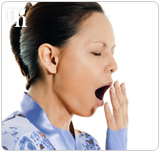
Natural hormones are those that are produced naturally in the body. In women, the three principle hormones that affect reproductive life are estrogen, progesterone, and testosterone. These hormones are chemical messengers that travel around the bloodstream, and instigate various bodily changes. Collectively, these three natural hormones are responsible for ovulation, menstruation, and the changes that occur during puberty, pregnancy, and menopause.
However, bioidentical hormones are hormones that are made in a laboratory from plant extracts. They are produced from the chemical extracts from yam or soybean plants. Bioidentical hormones are natural in the sense that they are derived from natural, plant products, but are not defined as “natural” hormones; these are the ones that the body produces itself.
Bioidentical hormones are used to address imbalances that may occur in the body's natural hormone levels. They are manufactured to have a molecular make-up which is identical to that of human hormones. When bioidentical hormones are introduced into the body, they behave in a similar way to the body's natural hormones, and counteract low levels of natural estrogen, progesterone, or testosterone.
Read on to learn more about the different types of bioidentical hormones.
Estrogen Bioidentical Hormone
Estrogen is an important hormone in the female reproductive system, its main function being to control ovulation and the menstrual cycle. Estrogen deficiency can have unpleasant and uncomfortable symptoms such as hot flashes, headaches, fatigue, mood swings, and depression. Bioidentical estrogen hormone therapy can be a reliable way to correct estrogen imbalance and combat such symptoms.
Progesterone Bioidentical Hormone

Progesterone works alongside estrogen during the menstrual cycle, where it is responsible for cyclical changes in the lining of the uterus. It also plays a key role during pregnancy. Symptoms of low progesterone levels include: fatigue, breast tenderness, mood swings, irritability, and vaginal dryness. Progesterone is often blended with estrogen in bioidentical hormone replacement therapy, to stabilize irregular and imbalanced natural hormones.
Testosterone Bioidentical Hormone
Testosterone is usually associated with male sexuality. However, it is present in minimal amounts in women. It is responsible for aggression, sex drive, and strength. Bioidentical testosterone hormone therapy can be effective in combating the rare cases of testosterone deficiency that exist among menopausal women. However, when used inappropriately it can have particularly unpleasant side effects, such as deepening of the voice and facial hair growth.
Bioidentical hormones can be an effective way to supplement the body's natural hormones, and to stabilize hormonal imbalances. However, there are many risks and health concerns associated with bioidentical hormones as a method to address hormonal imbalance. It is thought that they increase the risk of cancer, heart disease, and strokes. Click on the following link to learn more about treatments for natural hormone imbalance.


